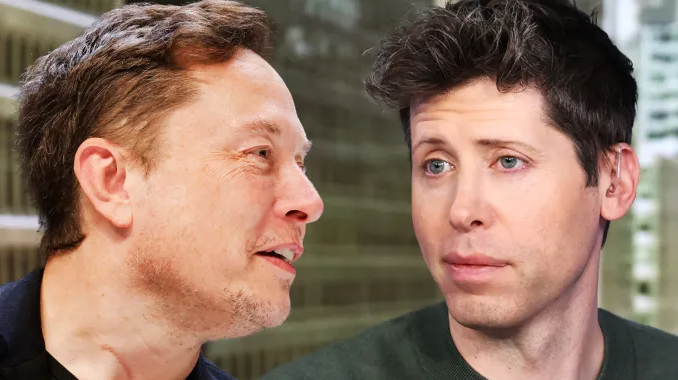SAN FRANCISCO – In a move that appears to intensify the rivalry between two tech titans, OpenAI’s Chief Executive Officer and co-founder, Sam Altman, has firmly dismissed an unsolicited $97.4 billion takeover bid led by Elon Musk. The offer, which emerged amid a longstanding feud between Musk and Altman, was swiftly rebuffed, with Altman asserting that OpenAI is “not for sale.”
The bid, orchestrated by Musk’s AI venture xAI in collaboration with private equity firm Valor Equity Partners, aimed to acquire the assets of OpenAI’s nonprofit entity. Musk, who co-founded OpenAI in 2015 but departed in 2018 following internal disagreements, has been a vocal critic of the organization’s direction under Altman’s leadership. He contends that OpenAI has strayed from its original nonprofit, safety-centric mission, a claim that has fueled the ongoing discord between the two leaders.
In response to the acquisition attempt, Altman addressed OpenAI employees in a letter, emphasizing that the company’s board had not received an official offer and, if one were presented, it would be rejected. He characterized Musk’s bid as misaligned with OpenAI’s mission and values, suggesting that it was a tactic intended to disrupt the organization’s progress.
Taking to Musk’s own social media platform, X (formerly Twitter), Altman quipped, “No thank you, but we will buy Twitter for $9.74 billion if you want.” This remark not only dismissed the takeover bid but also highlighted the ongoing tension between the two tech moguls.
Musk’s offer has introduced complexities for OpenAI, particularly as it navigates its transition from a nonprofit to a public benefit corporation. This shift has been a point of contention, with Musk arguing that his initial investment was intended for a charitable organization. Legal experts note that the board of OpenAI’s nonprofit arm is obligated to consider any offers that could further its mission of ensuring artificial general intelligence benefits humanity. However, Altman remains skeptical of Musk’s intentions, referencing Musk’s previous acquisition strategies, including his purchase of Twitter.
The public exchange between Altman and Musk has escalated, reflecting their deepening rivalry. Altman has publicly commented on Musk’s demeanor, stating, “I feel for him. I don’t think he’s a happy person.”
As OpenAI continues its mission to advance artificial intelligence responsibly, the organization faces the dual challenges of internal governance and external pressures from industry competitors. The outcome of this high-profile dispute remains uncertain, but it undeniably marks a significant moment in the evolving landscape of AI development and corporate dynamics.

